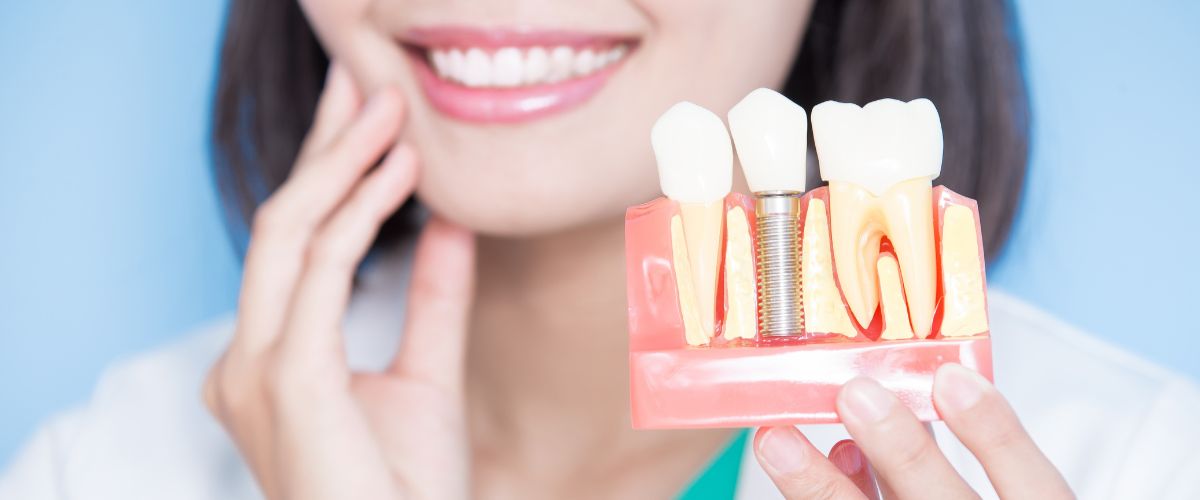Visiting the dentist is a source of anxiety for many. The fear of loud drills and tooth-scraping has followed many from their childhood days, and drives them to avoid it in adulthood. However, not every dentist is alike, and in this article, we help uncover the gentler side of dentistry, to help you get through your worries.
Key Takeaways
Dentophobia - The Fear of Dentists
Imagine sitting in the waiting room of a dentist's office, surrounded by the sterile smell and the sound of drills buzzing away. Your heart starts racing, your palms become clammy, and you feel a surge of anxiety coursing through your body.
If this scenario sounds all too familiar, you may be suffering from dentophobia—the fear of dentists.
Dentophobia, also known as odontophobia, is a specific type of phobia characterized by an intense and irrational fear of dentists or dental procedures. This fear can range from mild uneasiness to outright panic at the thought or sight of dentist tools.
And for some people, this makes visits to the dentist almost impossible.
Top 5 Fears When Going to the Dentist

Many people feel anxious when going to the dentist. But what part of the dentist visit causes the most fear?
These fears can be especially severe for more extensive treatments such as wisdom teeth surgery, implant dentistry, dentures, dental crowns, dental fillings, dental bridges, and the list goes on. So to create a comfortable environment, a good dentist has to recognise these fears and reassure the patient. By prioritising the concept of Gentle Dentistry, we can make sure that both children and adults have a positive dental experience.
What is Gentle Dentistry?

Gentle dentistry is a principle that focuses on relieving a patient's anxieties and reducing pain and discomfort during treatment. This type of approach is particularly important for children, to form positive memories of dental care during their formative years.
Gentle dentists and dental surgeons have the skills, technique, and technology to ensure that dental procedures are as painless and stress-free as possible. They prioritise the patient's comfort and well-being above all else, and take the time to listen to their patients' concerns, answer questions, and provide clear explanations about procedures.
This holistic approach to dental care recognises that a patient's experience in the chair can have long-lasting effects on their perception of dental care and their willingness to seek effective treatment in the future. By prioritising comfort and communication, gentle dentists will help every patient get a caring dental experience.
Finding a Gentle, Caring and Confident Dentist - How Do I Know Who to Trust?
To decide whether you can trust a dentist, consider the following factors about them:
Recommendations
Seek personal recommendations from friends, family, or online reviews, to ensure that the dentist has gained trust from other patients. A good dentist will have served plenty of satisfied patients.
"I used to be afraid of visiting the dentist. I would only go to one if I had any dental issues. When I first visited De Pacific, I was assured by Dr Angela's reassuring, friendly and kind manner. She ensured that I felt as comfortable as I could. She is gentle but thorough working with my teeth. She also patiently answers all my questions at every visit. I appreciate how she explains what is going on with your oral health and never says, "You didn't do this" or use blaming words/language."
Office Atmosphere
Evaluate your first impression of the dental office based on the atmosphere. A major red flag is if the office is dirty, or is lacking a good reception area. A dental clinic is a medical centre, and is meant to be well-kept.
"Wonderful experience with Dr Bran and team. I’ve always been afraid of going to the dentist since I was young but not anymore! Dr Bran is very friendly, gentle, patient and skillful! Before every step, he will take the time to explain the purpose to keep me in the loop. He keeps me assured by letting me signal any discomfort by raising my hand so that he can pause what he’s doing. To my surprise, I did not raise my hand at all. I’ve been to many dentists and this is the first time I’ve experienced very small injection pain that is equivalent to an ant bite! I’m thankful for Dr Bran’s skills and patience and highly recommend his services. Through this experience, I will be a regular from now on."
"Dr Audrey and the clinic staff are very professional and friendly. Fast and fuss free cleaning. Been going to depacific for many years and service has been consistently good."
Communication
Assess the dentist's ability to clearly explain your dental concerns, treatment options, and prevention methods. A trustworthy dentist will answer your questions patiently and be open to addressing your concerns.
"Very Blessed to have Super great dentist like Dr Rachel Yap!Strongly recommend Dr Rachel Yap for her best dental services always ! Her professionalism and expertise is highly commendable.She is super experience Senior Dentist, very meticulous, patience and extremely professional. I’m her loyalty patient for more than 10 years!She always provide appropriate dental treatments & services, very patience, gentle in treatment, always get my responses during treatment and extremely reliable dentist.Always strongly recommend my family and friends to her 🙂 All the best!"
"Everybody is very kind. I was turned down by several other dentistry practice for my syndrome but they booked me an appointment immediately. I have been going there for a year and managed to do so many things - including managing my syndrome. Thank you Dr Noah and Dr Kenneth!"
Qualifications and Experience
Verify the dentist's professional qualifications, expertise in the dental science field, and how many years of experience they have.
"Dr Low and Dr Erica had taken care of my family’s dental care for a better part of a decade. Very thoughtful and caring staff. Dr Low has been a friend and a dentist. Highly regarded doctor. Never disappointed with this team. Well done."
By evaluating these factors, you can determine whether to trust a new dentist and make a well-informed decision about your dental care.
dePacific Dental has been operating in Singapore for over 20 years. Our dental team is experienced in gentle care, and we ensure that your kids won't grow up with bad memories of visiting a dentist.
Make Your Next Dental Visit a Gentle One with dePacific Dental

At dePacific Dental, we understand that visiting the dentist can be an intimidating experience for many. As a provider of family dental care, our greatest aim is to be "Reliable, Gentle, Caring". We want to treat your dental issues while ensuring you feel comfortable and relaxed throughout your appointment.
Our team is made up of gentle professionals who are committed to delivering a comprehensive range of dental services, ranging from routine check-ups to restorative dentistry to cosmetic surgery. You can enjoy a stress-free trip to any of our clinics listed here.
To find out more, contact us here!
Frequently Asked Questions: Can Dentistry be Painless?

To minimise pain and discomfort during dental procedures, dentists typically use local anaesthesia. This involves applying a topical anaesthetic cream to the gums, before injecting a numbing agent to the treatment area. In more involved surgeries, or for severely dental-phobic patients, trained anaesthetists may sedate patients for further peace of mind. A good dentist always checks with the patient if the area is numb before beginning the dental treatment, to cause as little pain as possible.
While gentle dentists make an effort to create a comfortable environment, some minor discomfort may still be felt during most procedures. Modern dentistry techniques such as local anaesthesia and sedation can significantly reduce pain during the procedure, but there's no guarantee it'll be 100% painless.
There are a few signs to look out for when selecting your dentist. A negative sign is a lack of focus on preventive care. A dentist should offer guidance for maintaining long-term oral health, instead of focusing solely on treating existing problems.
Another indication is the inability of a dentist to minimise a patient's pain during treatment, or unclear explanations of procedures and their purpose. A dentist ought to support their patient and make sure that they're fully aware and informed of the process.
Finally, keep an eye out for negative reviews or complaints from patients. Poor reviews on online pages can help you determine whether or not you should seek care elsewhere.

